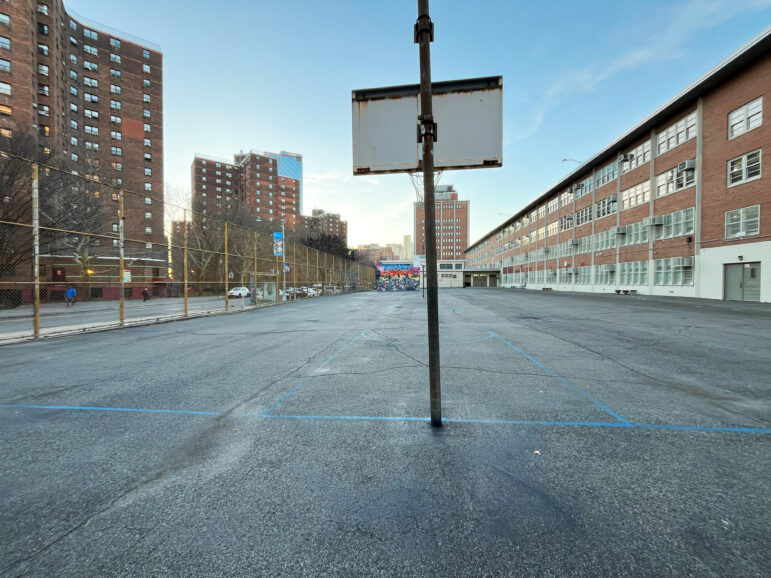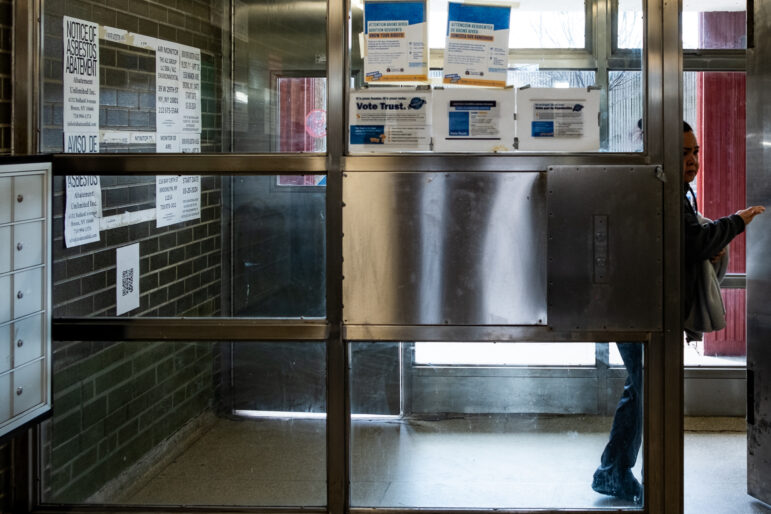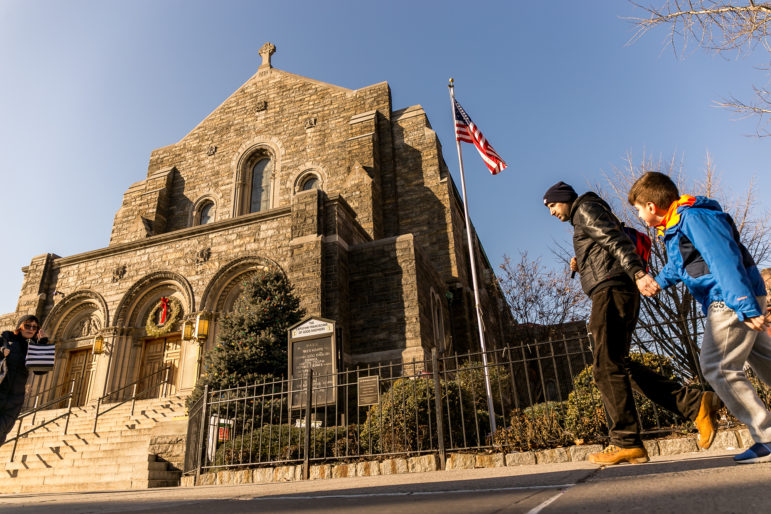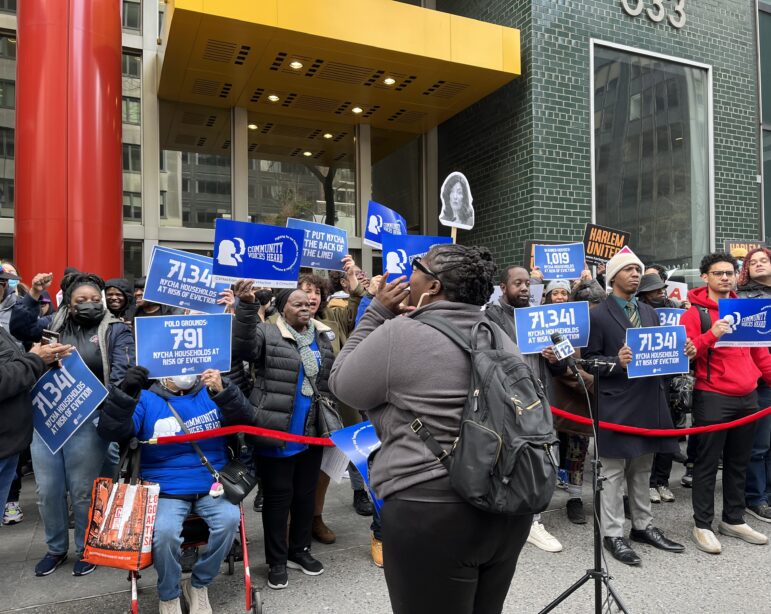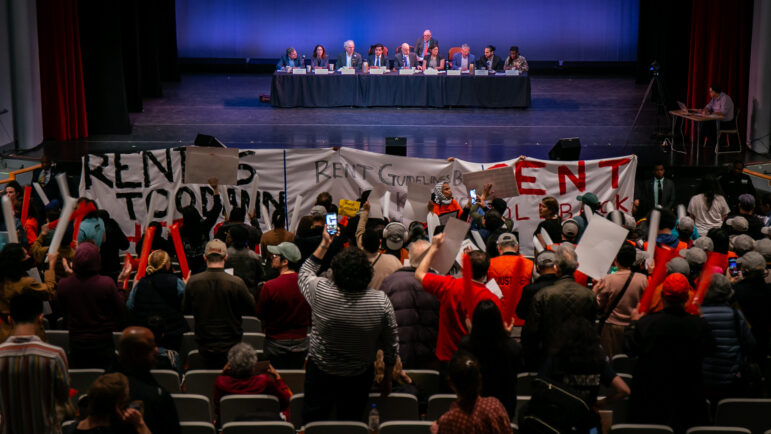Despite a veto override, a December letter from Department of Social Services Commissioner Molly Park says certain CityFHEPs voucher legislation passed by the City Council “cannot be implemented at this time.”
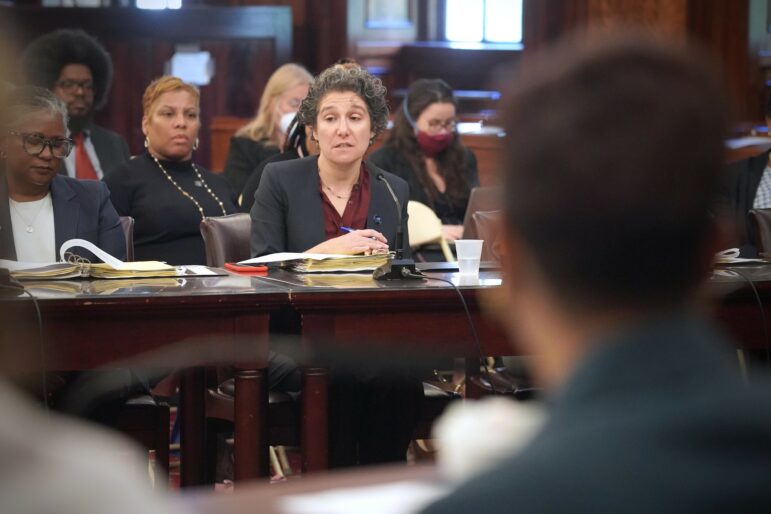
Gerardo Romo / NYC Council Media Unit
Department of Social Services Commissioner Molly Park testifying before the Council’s General Welfare Committee in May.In late November, shortly after City Limits reported that Mayor Eric Adams’ administration was not planning to fully implement a legislative package that would expand eligibility for city rental vouchers, Deputy Council Speaker Diana Ayala sent a letter to Department of Social Services (DSS) Commissioner Molly Park.
Noting that the implementation deadline is looming on Jan. 9, Ayala cited City Limits’ coverage: “the administration is referenced as not acting on the legislation, can you confirm this is accurate?” she wrote.
In a Dec. 15 response, Park said that three of the four bills—all of which the City Council passed over mayoral veto in July—are indeed not on the administration’s agenda. They all reform the City Family Homelessness and Eviction Prevention Supplement voucher program, known as CityFHEPS.
Park wrote that these laws “cannot be implemented at this time,” citing “substantial financial, operational and legal issues.”
Launched in 2018, the CityFHEPS program allows tenants to pay part of their income in rent, up to 30 percent, while the city covers the rest, up to a fixed maximum. More than 36,000 households currently receive these vouchers.
Local Laws 100, 101 and 102 are closely interrelated and together extend CityFHEPS eligibility to people experiencing homelessness outside of traditional Department of Homeless Services (DHS) shelters, including youth, in addition to raising the income ceiling and eliminating work rules.
A 90-day waiting period to become eligible for CityFHEPS in shelter is also eliminated—a change Adams plucked out and implemented last summer before vetoing the Council bills.
Significantly, the laws also expand eligibility for CityFHEPS outside of shelter, to income-qualifying tenants who receive formal notice that they are behind on rent and could face eviction. Advocates say this could help low-income renters hold onto their homes and avoid onerous apartment searches on the open market.
“By offering rental assistance to people at risk, you’re able to preserve housing,” said Eric Lee, head of policy and planning at Homeless Services United.
The Adams administration has reformed CityFHEPS rules in other ways, Park wrote, including allowing voucher use statewide, and would consider offering vouchers to specific populations including households with a pregnant person or newborn.
Park also referenced a fourth law in the Council package, Local Law 99, that changes how CityFHEPS vouchers cover utility costs. DSS has taken steps “consistent with the aims” of this law, she said.
Cost estimates for the Council package vary. The Adams administration estimates $749 million in the first year, assuming 47,000 new voucher recipients, compared to $550 million for the program as it currently exists. City Hall’s projected five-year cost is $17 billion, factoring in $228 million in estimated shelter savings.
Savings are low, Park wrote, because data “clearly show that most DHS shelter entrants do not become homeless due to a formal eviction.”
According to DSS, over the last year, an average of about 4 percent of families who entered the DHS shelter system each month reported receiving an eviction notice in the year prior, down from 10 percent before asylum seekers began entering the system in large numbers in 2022.
Single adults, who made up about a quarter of the DHS shelter population on Jan. 2, undergo a different intake process and are excluded from the analysis.
Debipriya Chaterjee, a senior economist with the Community Service Society (a City Limits funder) and proponent of the CityFHEPS bills, urged a longer time horizon, which she said might capture more families who eventually land in shelter after an eviction.
“We have pushed back saying coming into the shelter is sort of the last resort for people who have been evicted,” she told City Limits Friday. “Most times they max out other options like families, friends, couch surfing.”
In her letter to Ayala, Park reiterated the city’s position that offering CityFHEPS vouchers to a larger pool of households could make it difficult for existing voucher holders to find apartments in the city’s tight rental market.
“Further, as the gap between the number of people eligible for a voucher and the funding for the vouchers grows, DSS will be required to create and maintain a waitlist for vouchers,” she said.
Park also argued that the bills impede on state authority—though the Council has countered that it has reformed the program before without incident—and nodded to the possibility that the city could be sued over its inaction.
The Council and mayor’s office have “shared goals of making sure that as many people as possible remain stably and permanently housed,” she wrote, and “we hope to avoid the protracted time and expense of litigation.”
Park’s comments frustrated advocates who pushed for the passage of the full Council package. “I know that I cannot pick and choose which laws I adhere to,” said Patricia Glover, a member of the Urban Justice Center’s Safety Net Activists. “If I run a red light I’m going to have to pay a fine.”
Jamie Powlovich, who directs the Coalition for Homeless Youth, focused on that population in particular. Historically, young people who leave a specialized shelter more often land in another homeless setting than an apartment of their own.
“Refusing to implement these laws would be yet another example in a long history of our city failing homeless youth,” she said.
Reached for comment, a City Council spokesperson said Adams “has a responsibility to comply with all local laws,” and alluded to possible legal action.
“If the administration chooses to violate enacted laws and block New Yorkers from access to housing vouchers, it will only place Mayor Adams and the city at risk of legal action from the people most harmed—those who are homeless or at risk of becoming homeless being denied help by the mayor,” they said.
To reach the reporter behind this story, contact Emma@citylimits.org. To reach the editor, contact Jeanmarie@citylimits.org


